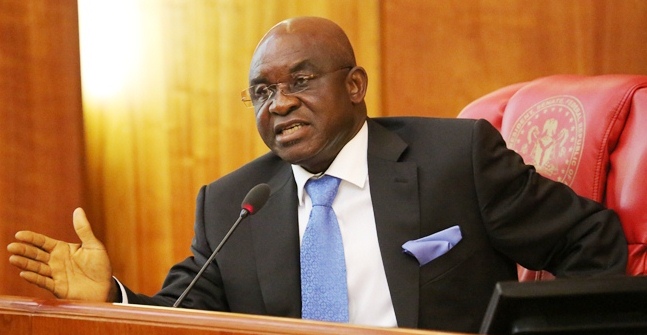

By Ameh Comrade Godwin
Since the return of democracy in 1999, the Nigerian Senate has often been criticised for its perceived lack of assertiveness and independence in checking the executive branch.
Many Nigerians have referred to the Senate as a “rubber stamp”, raising concerns about its ability to effectively perform its legislative duties.
However, there was a time when the Senate was vibrant and lived up to expectations under the leadership of David Alechenu Mark, the longest-serving President of the Nigerian Senate.
This has made many Nigerians wondering when the nation will have another Senate President like him.
David Mark’s tenure as Senate President from 2007 to 2015 is widely regarded as one of the most successful periods in the history of the Nigerian Senate.
During his leadership, the Senate demonstrated its legislative power and independence, often taking decisive actions in the interest of the nation.
One such notable event was in February 2010 when the Senate passed a resolution making Vice President Goodluck Jonathan the Acting President and Commander in Chief of the Armed Forces. This action was taken after President Umaru Yar’Adua had been receiving medical treatment in Saudi Arabia for 78 days, leaving a power vacuum in the country.
The Senate, led by David Mark, asserted its authority by invoking the “doctrine of necessity” to ensure continuity in governance.
Following David Mark’s tenure, the Nigerian Senate continued to play a significant role in shaping the country’s political landscape.
Under the leadership of Bukola Saraki from 2015 to 2019, the Senate demonstrated its willingness to challenge the central government, leading to some clashes between the executive and legislative arms.
These confrontations were not without merit, as they often revolved around important issues of national interest, prompting the Senate to assert its constitutional responsibilities and duty to check executive excesses.
It was believed that the ruling party was against the choice of Saraki as the Senate President.
Despite these conflicts, the Senate was able to assert its legislative power on several occasions, ensuring checks and balances between the executive and legislative arms of government.
Unfortunately, since the emergence of Ahmed Lawan as Senate President between 2019 and 2023, many Nigerians believe that the Senate has lost its vibrancy and independence.
Under Lawan’s leadership, the Senate was perceived as acquiescent to the decisions of the Buhari-led government, leading to the nickname “rubber stamp Senate.”
The approval of loans without adequate scrutiny raised concerns about the Senate’s ability to provide effective oversight of government spending.
The current Senate, led by Godswill Akpabio, is already facing controversy and skepticism. Akpabio, a member of the APC, stepped down for Bola Tinubu during the APC presidential primary in 2023.
In fact, during one of the plenaries recently, Akpabio stirred the dust when he stormed the Senate donning a cap bearing the insignia of President Tinubu.
Concerns have arisen about whether the Senate will remain a toothless bulldog under his leadership, raising questions about when Nigeria will produce another vibrant Senate President like David Mark.
David Alechenu Mark’s tenure as Senate President remains a benchmark for the vibrancy and effectiveness of the Nigerian Senate.
Many Nigerians hope that Akpabio will steer the Senate towards reclaiming its status as a formidable institution that prioritizes the interest of the people and adheres to the principles of checks and balances.
During his time, the Senate demonstrated its legislative power, asserted its independence, and played a pivotal role in ensuring good governance and checks on the executive.
However, in recent times, the Senate’s assertiveness has been questioned, leading to concerns among Nigerians about its effectiveness as a legislative arm of government.
As the nation moves forward, Nigerians yearn for another Senate President who can replicate the achievements of David Mark, and revitalize the Senate’s role in strengthening democracy and governance in Nigeria.
The Minister of the Federal Capital Territory (FCT), Nyesom Wike, has dismissed rumours suggesting he…
The Senator representing Benue South Senatorial District and Senate Minority Leader, Comrade Abba Patrick Moro,…
Armed men suspected to be bandits raided Agbo Vengav, a community in Udam, Gwer West…
Former Governor of Benue State, Chief Samuel Ortom, has called off all planned celebrations for…
Benue State Governor, Hyacinth Alia, has appointed renowned music icon, Innocent "2Face" Idibia, as the…
Governor Hyacinth Alia has stressed the importance of taking a clear-eyed, strategic approach to security…